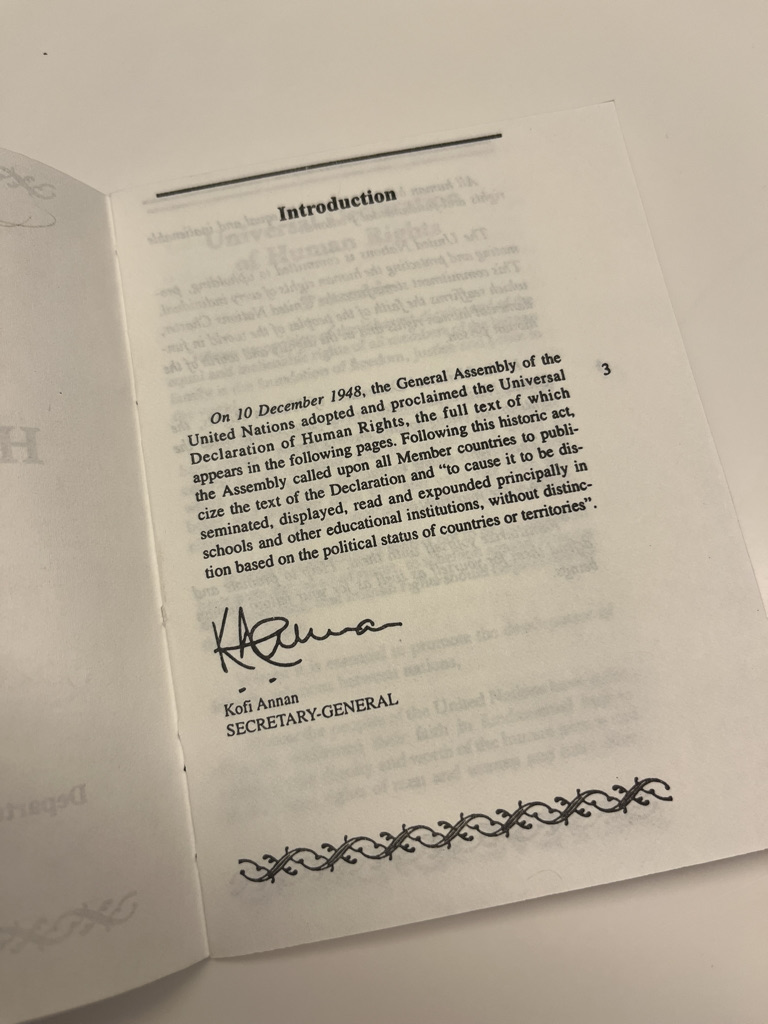Today we celebrate the 75th anniversary of the “Universal Declaration of Human Rights” (1948/12/10). The development of human rights was “drafted by people from different legal, religious, and cultural backgrounds from all over the world” (Human Rights Watch, https://www.hrw.org, 2023/12/10).
The “Human Rights” can be the role model with the process of development, the basic content and structure, and can be the fundament for a global constitution.
The sad story about the “Universal Declaration of Human Rights” is its context. It clearly happened as a reaction to the 2nd World War, probably one of the most severe or disastrous events in human history.
Currently we are heading into a new, most likely more severe humanitarian catastrophe with global warming, climate change, and the loss of biodiversity.
The question is whether we can learn from history, whether we can imagine, whether we can anticipate, whether we can prevent such a catastrophe.
In our view, therefore we need to go a step further with the “Human Rights” and develop them within a (grass-roots) democratically organised process into a binding global constitution. This may sound difficult or even utopian. But to scope with unleashed forces from the global economy, to scope with global liberated markets, which we are basically in favour, we have to develop at least an equally strong global political framework. A global constitution would be the fundament of such a global political framework.
We know the “Human Rights” are fantastic but more or less symbolic. We need binding and executable global rules, (grass-roots) democratically legitimised.
A global constitution would be the fundamental part of a global democracy, a global parliament, a global legislation, execution, and justice system, all independent from each other (most important within the concept of a “Republic”).
With the World Wide Web, smartphones, and security systems we have the technology today to organise such a (grass-roots) democratic process on a global scale, much better than back in 1948 with the “Human Rights”.
The paradox about prevention and proactive acting, you never know, whether you actually prevented something. Since the event is, with successful prevention, never taking place.
We know from change management, we know from system dynamics that we tend to linear projections instead of dynamic (exponential) projections within complex systems (e.g. COV-19 showed this), and we tend to wait for change until the pressure of suffering is very high or unbearable.
With global warming, climate change, and the loss of biodiversity we face such a scenario. Reaching tipping points means the activation of self-reinforcing cycles of destruction.
We want to take the 75th anniversary of the “Universal Declaration of Human Rights” to pledge for the development of a global constitution as the fundamental part of a “Global Democratic Republic”.
We think, this has the potential to actually mitigate the current global challenges and can lead us into a healthy, and thus sustainable society within a globalised liberal economy.
